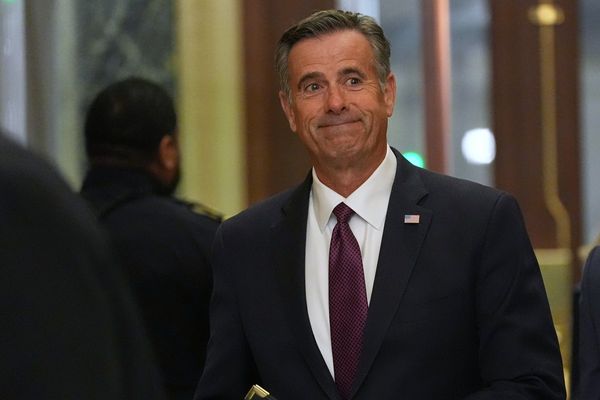
President Donald Trump’s sweeping tax cut and spending bill is now law, and one provision that would have helped the wealthy avoid capital gains tax was written out.
Tucked within the mega legislation known as the “Big Beautiful Bill” is a provision that some tax policy analysts call unprecedented, because it calls for a dollar-for-dollar federal tax credit for donations to private school voucher programs with no budgetary cap.
The legislation reduces the tax incentive for most charitable giving, while nearly tripling the tax incentive available to donors that fund free or reduced private K-12 schools, according to the Institute on Taxation and Economic Policy (ITEP).
Written out of the final version of Trump’s tax bill is a capital gains tax write off. An earlier version of the partisan legislation allowed donors who contribute appreciated assets, like corporate stock, to Scholarship Granting Organizations an additional tax benefit: capital gains tax avoidance.
The final version of Trump’s megabill could cost the U.S. as much as $25 billion per year, the National Education Association (NEA) estimates.
Here’s what you need to know about the private school voucher tax break, and what it could mean for your finances.
What is a tax credit voucher?
The private school voucher tax break, designed to reward individuals who make charitable donations to Scholarship Granting Organizations (SGOs), is a modified version of the proposed Educational Choice for Children Act.
SGOs are non-profit organizations that distribute donated funds to students via scholarships, often for private school tuition. The awards can be used to pay for tuition, books, and homeschooling costs.
How would the voucher tax credits work?
- In exchange for a donation to private K-12 school vouchers, taxpayers will get a dollar-for-dollar tax credit.
- The nonrefundable tax credit will be worth up to $1,700 (rather than 10%) of adjusted gross income as suggested originally.
The concept will promote private school choice by using public funds to help families pay for private school tuition or homeschooling expenses. That includes religious schools, which most voucher students attend.
It’s also referred to as “universal school choice,” a policy that the Trump administration has advocated for. It also aligns with Project 2025, a conservative policy agenda created by the Heritage Foundation.
Some states won’t participate in school voucher tax break
When it comes to the nation’s first federal school voucher program, Republican lawmakers allowed states and the District of Columbia, to voluntarily elect to participate in the tax break program for the tax calendar year and if so, identify scholarship granting organizations in the state.
Furthermore, the school voucher nonprofits can only administer school vouchers within their states. Private and religious schools will also be subject to federal regulations.
States won’t be forced to participate thanks to pushback from advocacy organizations like the National Education Association (NEA). That means Democratic-majority states like California and New York can opt out of the school voucher program.
As a note, private school vouchers have appeared on various state ballots 17 times, and voters have rejected all of them, as reported by the NEA. The most recent votes were in Colorado, Kentucky, and Nebraska in November of last year.
“There is no cap on how much the federal government will spend on this tax giveaway, and it is now a permanent part of the federal tax code,” wrote the National Education Association following the OBBA’s enactment. “NEA estimates that it will cost at least $25 billion per year.”
Who would qualify for the scholarships?
Under the GOP tax bill, Scholarship Granting Organizations will distribute donated money via scholarships to households earning at or below 300% of a given area’s median gross income.
It will also have to be for a qualified elementary or secondary education expense, including (but not limited to):
- Curriculum and curricular materials
- Books
- Fees for nationally standardized testing
- Online educational materials
- Tuition or fees for a private K-12 school and homeschooling expenses
Avoid capital gains tax under Trump's 'big bill'?
As initially drafted, Trump’s "big, beautiful bill" would have distributed $5 billion a year in federal tax credits for private school voucher donors each year. That budgetary cap was written off in the final version of the OBBBA.
Currently, donors to private school voucher programs will receive a dollar-for-dollar tax break equal to $1,700.
What else was eliminated from the final legislation? A lucrative tax shelter for the wealthy. An earlier draft of Trump’s “big beautiful bill” would have allowed private school voucher donors who contribute corporate stock, for example, to avoid capital gains tax.
Overall, the capital gains tax avoidance would have cost the federal government billions, ITEP estimates.
Other cuts to charitable donations
As mentioned, the dollar-for-dollar tax rebate for donors to private school voucher programs provision is “unprecedented at the federal level,” ITEP analysts say, as no other charity has ever received that kind of allowance.
What’s troubling: Trump’s tax bill could cut charitable giving tax incentives for donors to most nonprofit groups while tripling the incentive to donors that fund private K-12 school vouchers.
- ITEP estimates that donors to children’s hospitals or other charities would receive no more than 35 cents in tax savings for each dollar donated, down from a maximum tax benefit of 37 cents under Trump’s megabill.
- Additionally, the OBBB stands to reduce the average benefit of itemized deductions for charitable giving by more than a quarter.
Some critics of voucher programs argue that public dollars should be used to boost spending in public schools, not to subsidize private education. The private school voucher tax credit could create an indirect way of funding private schools with taxpayer dollars.
The ‘One Big Beautiful Bill’: What’s next
Trump’s self-dubbed One Big Beautiful Bill was enacted on July 4, 2025.
The major tax cuts and spending package is slated to add roughly $3 trillion to the debt through the next decade, and nearly $5 trillion as temporary provisions from Trump’s Tax Cuts and Jobs Act (TCJA) were made permanent.
The measure also includes a variety of changes to family tax credits and education credits.
Stay tuned for more information on how the newly enacted OBBB might impact your finances.







